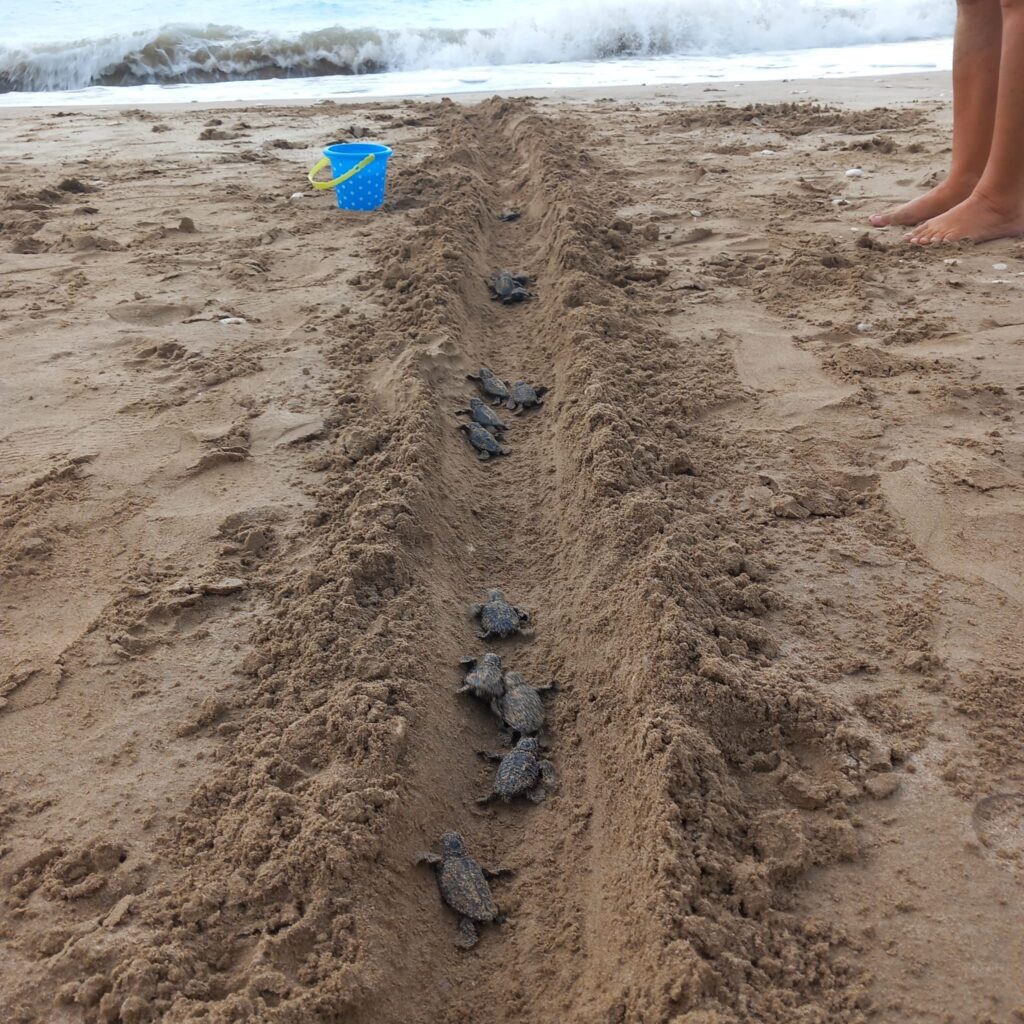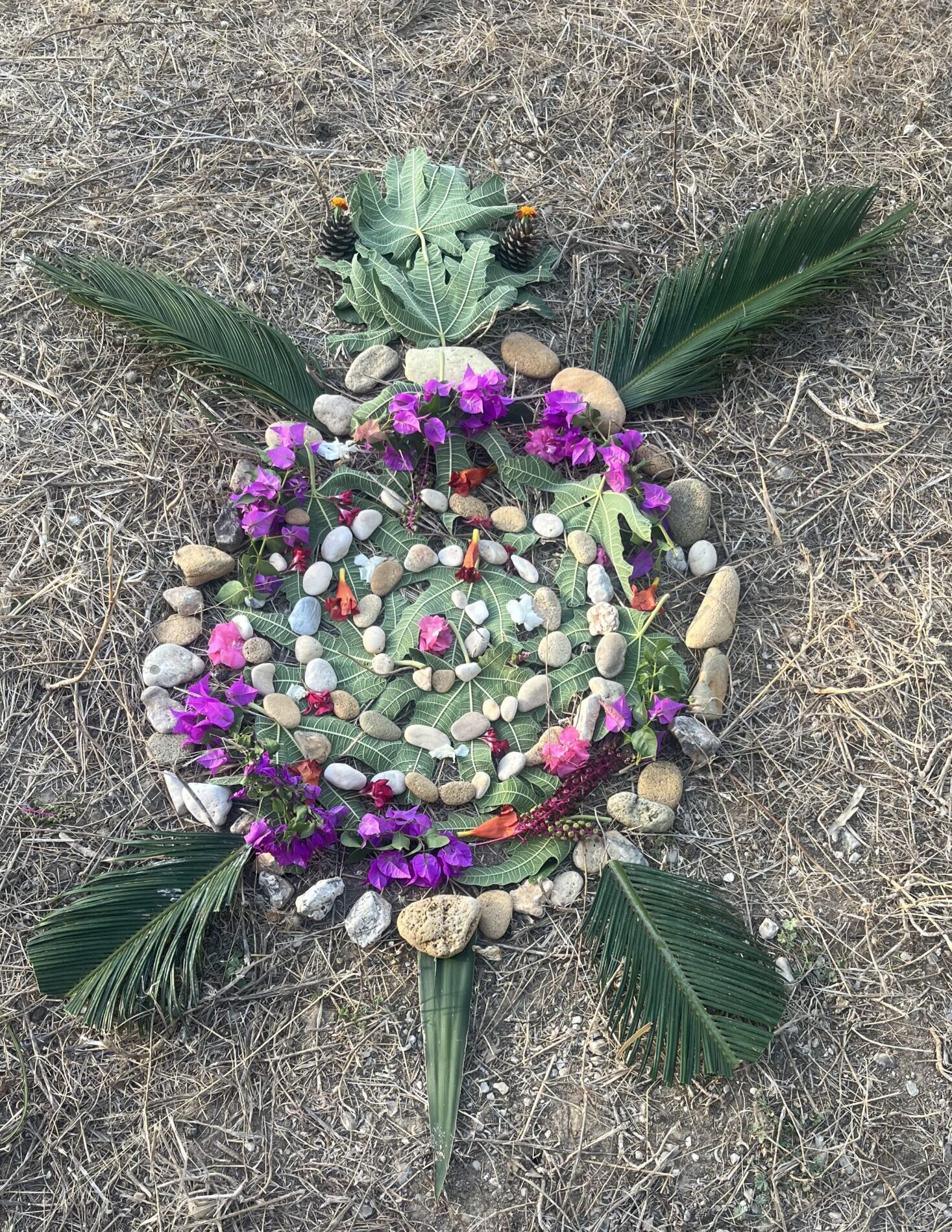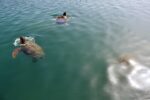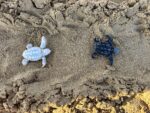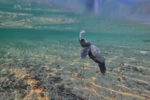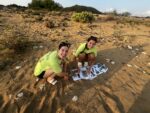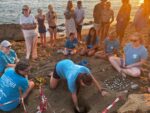Our latest news – September 11, 2023
Argostoli Field Station
We’ve had a busy and exciting two weeks here in the Argostoli Field Station! On the 29th of August, we found what we believe to be the final nest of the season, making it 50 nests found on Avithos Beach. This breaks our record for the number of nests recorded on one beach and the latest Wildlife Sense has ever recorded a nest! This brought our total nest count to 160 for the season, overtaking our last record by over 40 nests! As this was the only nest found in the past two weeks the whole team was thrilled to make this discovery!
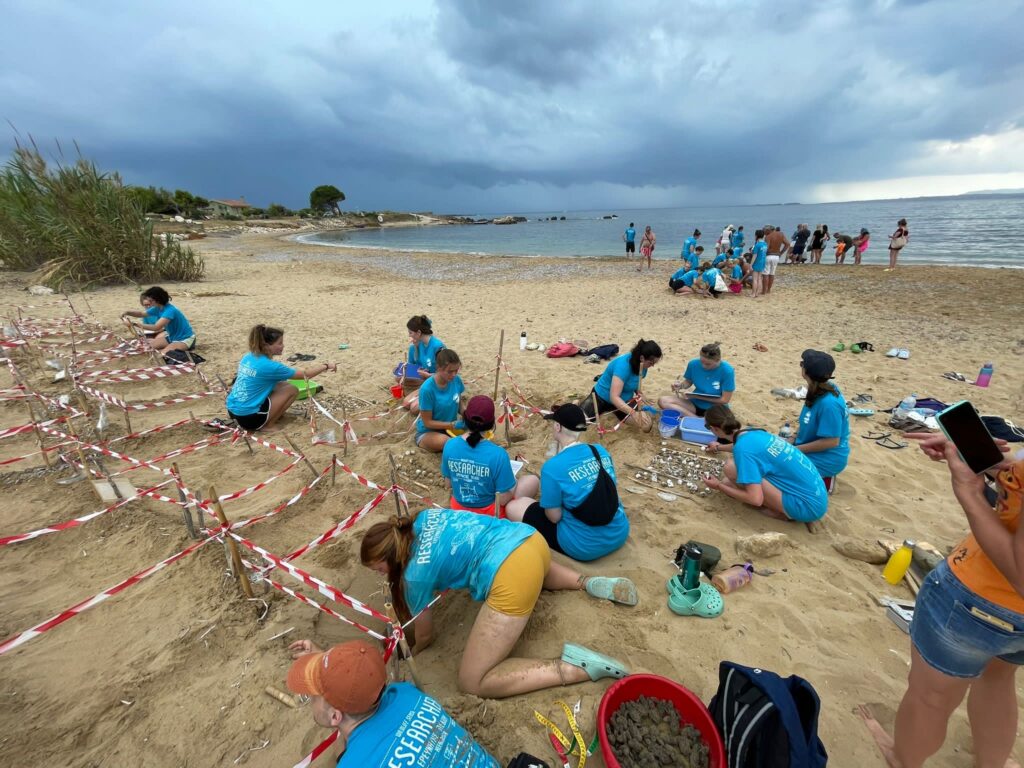
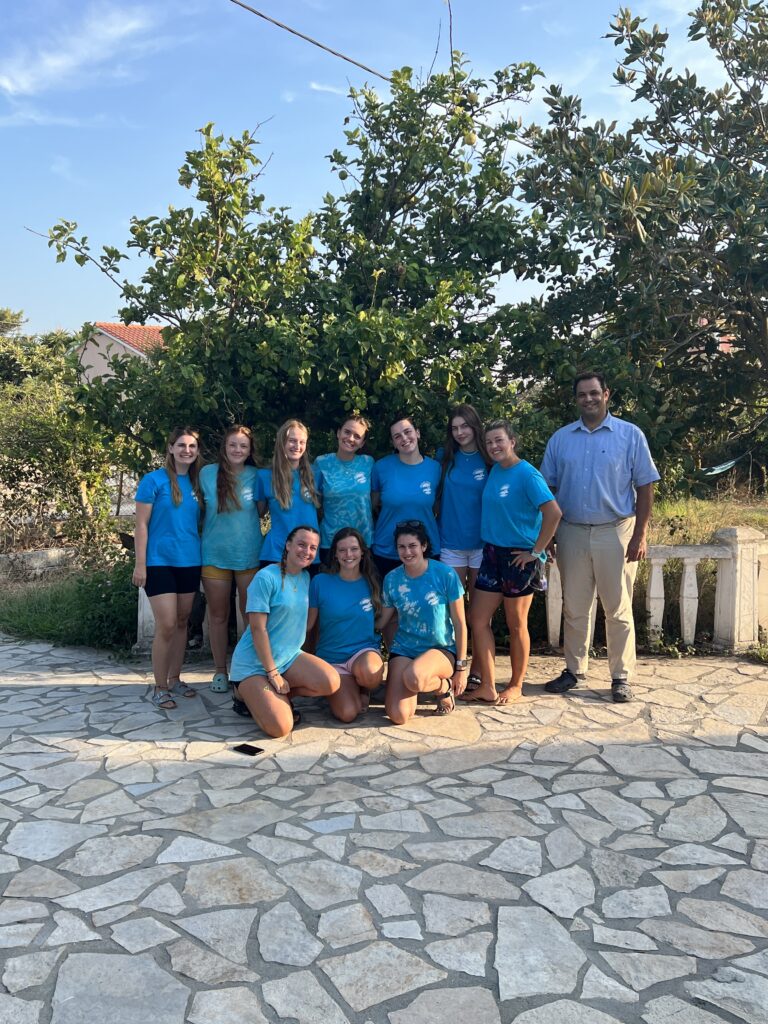
Our volunteers got the chance to join Canadian artist, Pierre Leichner, as he hosted a communal environmental art workshop in collaboration with the Ainos National Park held at the Kotavos Lagoon. They had the opportunity to create their environmental art installation made from natural resources, where they got to “slow down and reconnect with nature”, which our volunteers thoroughly enjoyed.
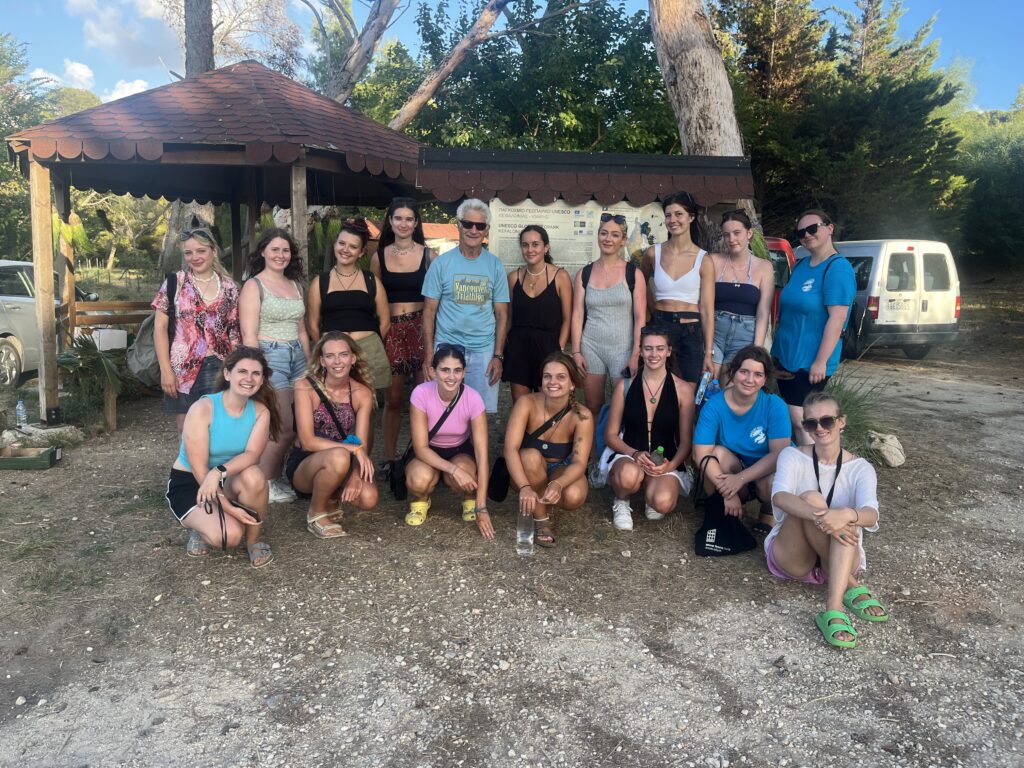
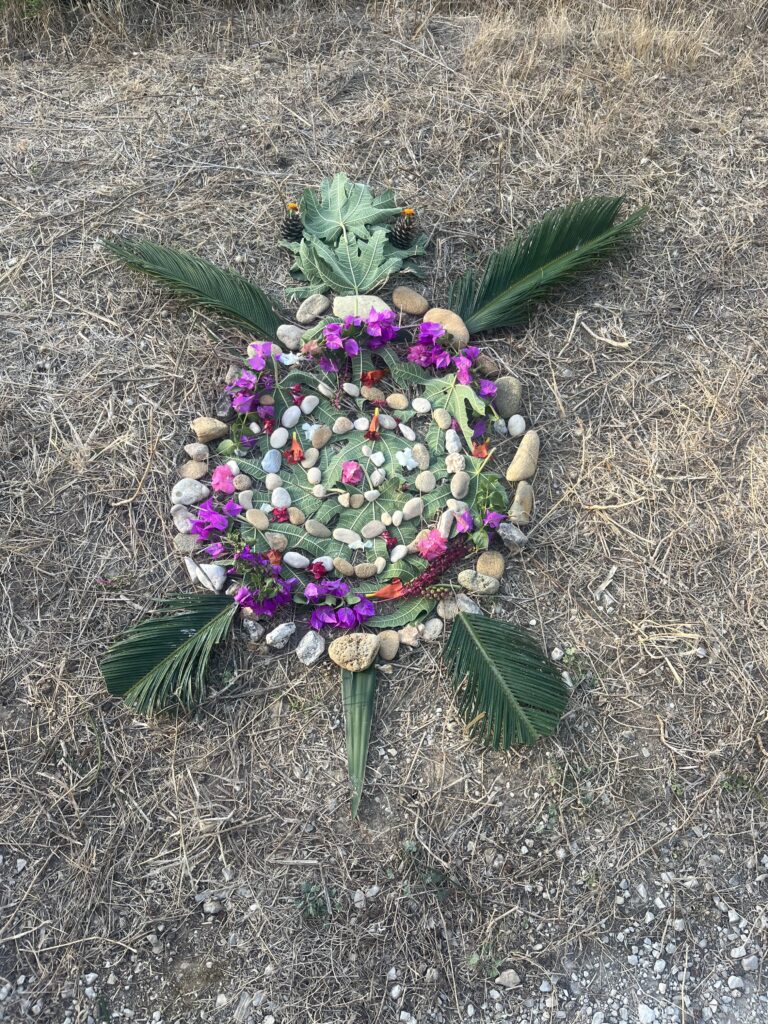
At the beginning of this week, we were delighted to welcome a new group of volunteers who were eager to get straight into work. During their training day, all team members got stuck in to carry out nearly 20 emergency inventories due to the incoming storm which risked inundating the nests, as well as putting the hatchlings at risk. In total, we managed to save 296 hatchlings and release them out to the sea successfully before the storm fully hit our region. This was incredible for our volunteers who were new to the project as they got to see hatchlings on their first day, despite the unsettled weather conditions.
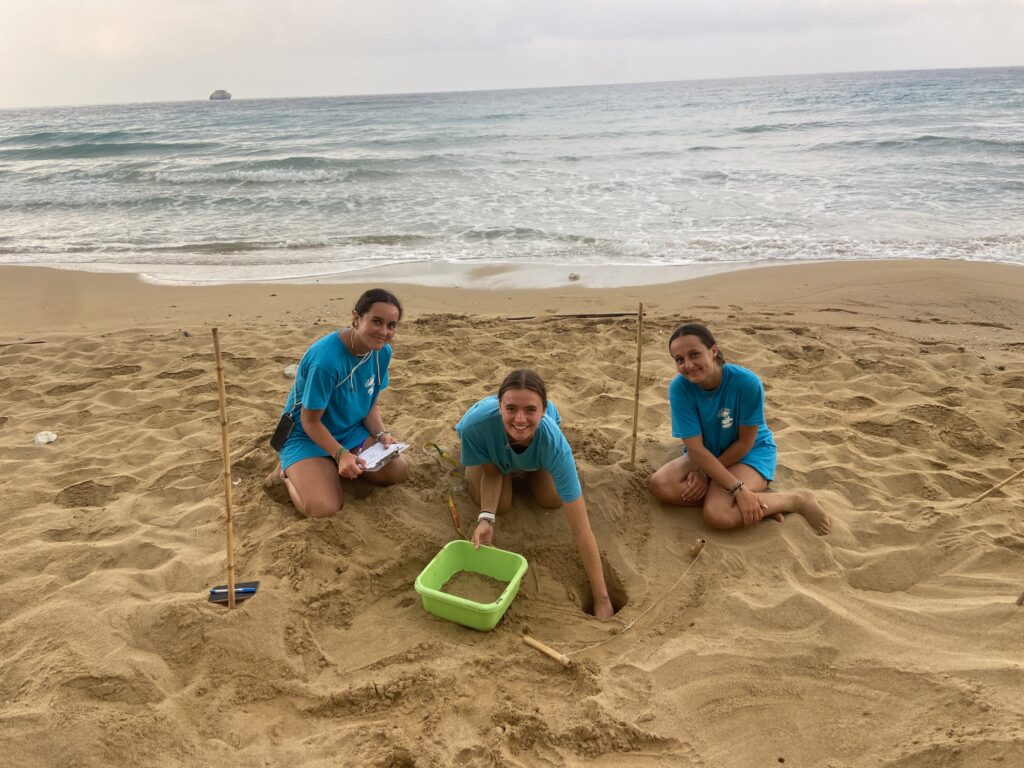
Bittersweet news to say farewell to three members of the core team who will be thoroughly missed, but we got to welcome a new field leader and two new field assistants back to the project, who are ready to jump into the hatchling season.
Lixouri Field Station
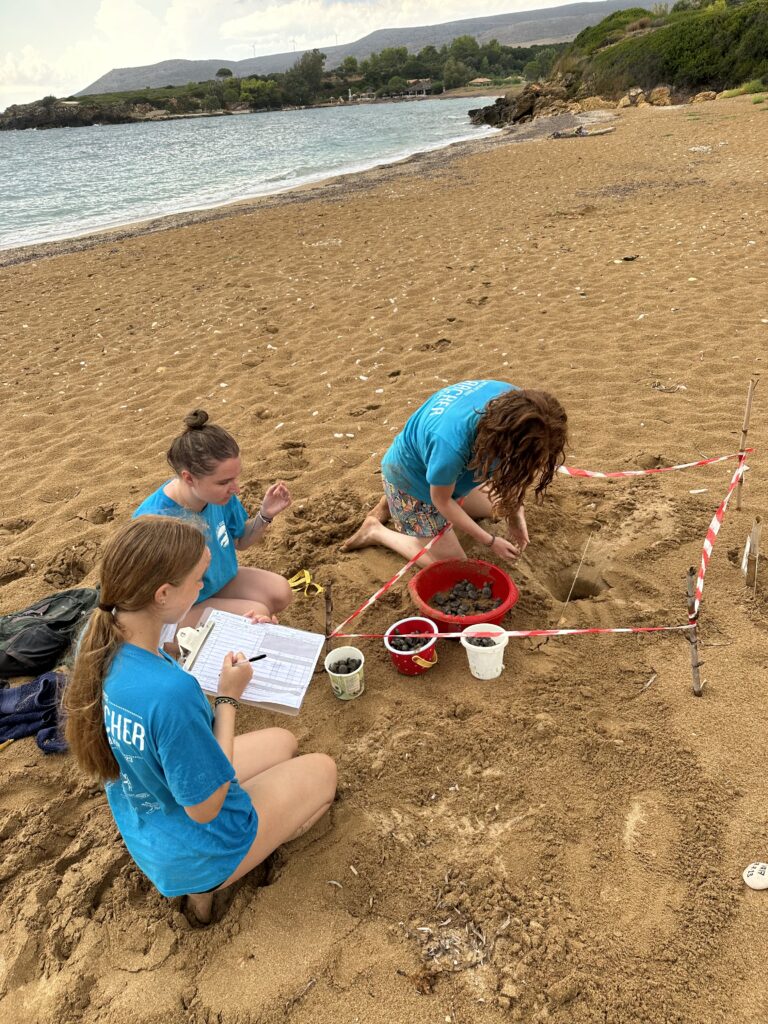
Hatching season is in full swing in Lixouri, with morning survey teams finding new hatchling tracks across the survey areas every day. During the last two weeks, 15 nests have reached 45 days of incubation, indicating that they will begin hatching soon. 15 new nests have also started hatching, including the last nest on Lepeda, LP7R, which hatched on the 30th of August and has now had a full inventory. This means that there are no more protected nests left on this beach! This has marked the end of our hatchling rescue shifts which have been hugely instrumental in ensuring the safe release of hatchlings to sea away from light pollution throughout hatching season.
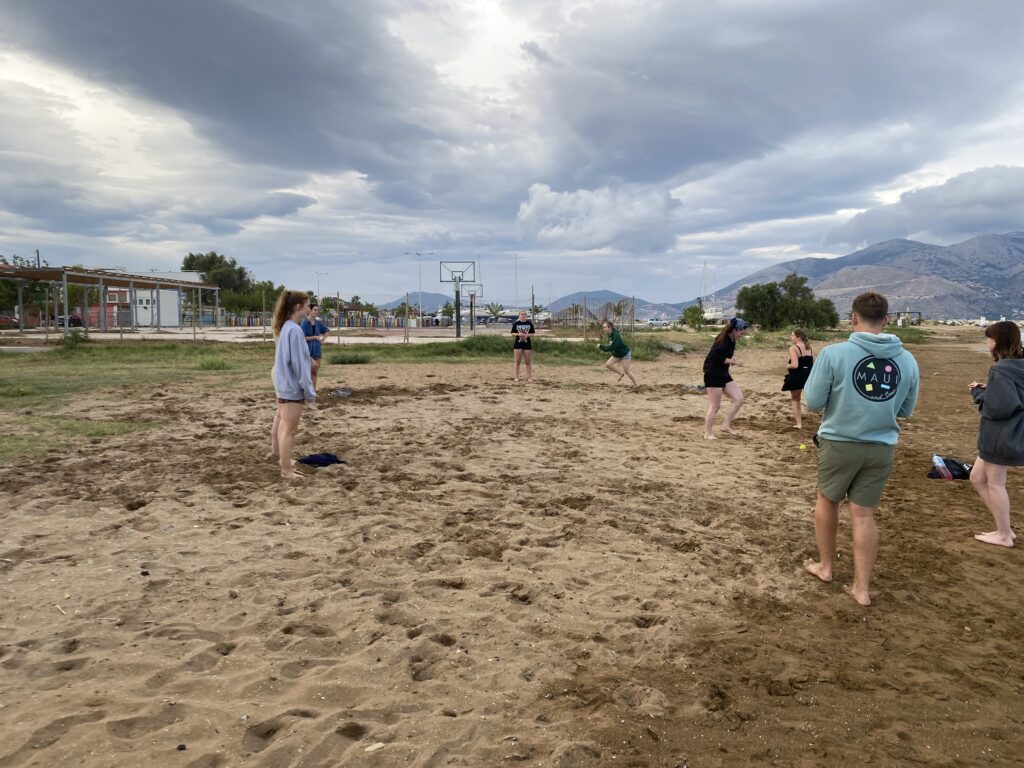
This fortnight has been a busy time for nest inventories, with 40 being carried out over this period. During these inventories, 646 hatchlings have been helped to sea, which brings the total number of hatchlings helped to sea this year to almost 2000! Our nest count across all beaches is now down to only 23, but there is still plenty of work to do to ensure that they are as successful as possible.
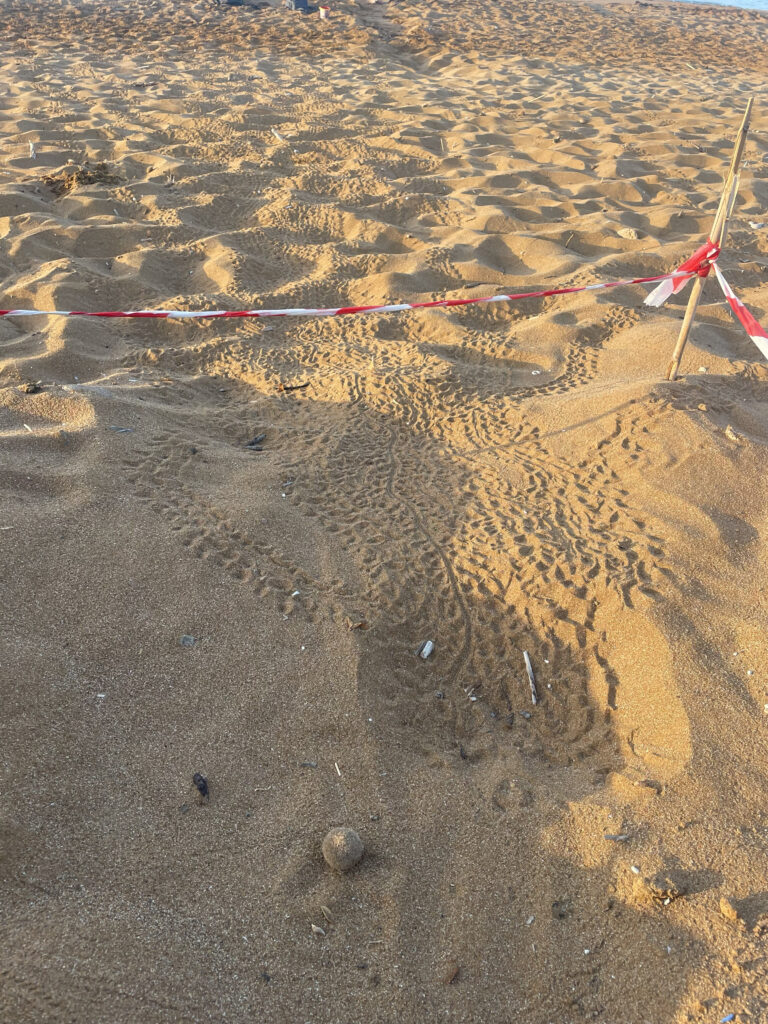
We have recently said farewell to some brilliant volunteers, who have worked tirelessly over the past fortnight to protect nests and hatchlings across our survey areas. With this, we have welcomed a new group, many of whom were lucky enough to help over 70 hatchlings to sea during their first nest inventory! They have also enjoyed some fun evening activities including beach rounders and souvlaki night. We all look forward to seeing what the next few weeks will bring!
Skala Field Station
The storm didn’t dampen any spirits over in Skala. We saw impressive lightning strikes over Zante so opted to keep busy with card games, a quiz, and movie nights. When the weather allowed, we continued with our sand dune and snorkel surveys, where volunteers spotted lots of marine life, such as the bearded fire worm and ornate wrasse.
Additionally, volunteers made the most of what Skala has to offer, trying out the local cuisine and diving off the coast, spotting shipwrecks and unique marine organisms like the moray eel, lionfish, and nudibranchs. Volunteers also tried out the water sport activities in Skala, as well as renting a boat and visiting some of the more remote beaches on the island, getting a real insight into how beautiful Kefalonia is. Volunteers continue to clean the beaches and do sand sifting shifts to preserve and maintain the nature of the island.
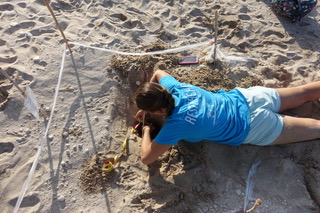
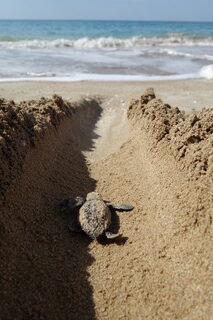
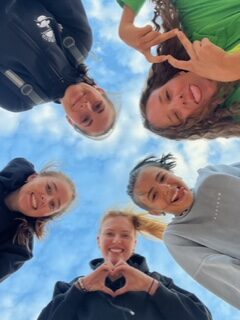
Whilst waving goodbye to the storm, we waved hello to our final group of volunteers. On their 3rd day, we surveyed the Lourdas beaches, which involved inventories and lots of hatchlings! Lourdas was an amazing experience for volunteers, as they had first-hand experience with hatchlings; one of the key species that benefit from their surveying and hard work in Skala.
With the Skala season starting to wrap up, we had to say our goodbyes to Camille, our intern who has been here since the beginning. The next 2 weeks look busy, and we can’t wait to see what it has in store for our final weeks!
Lourdas Field Station
Since our last update hatching season has continued to keep the Lourdas team busy with nests continuing to hatch steadily. Over the past two weeks we have worked hard during morning surveys and inventories helping a total of 190 hatchlings make it to sea safely.
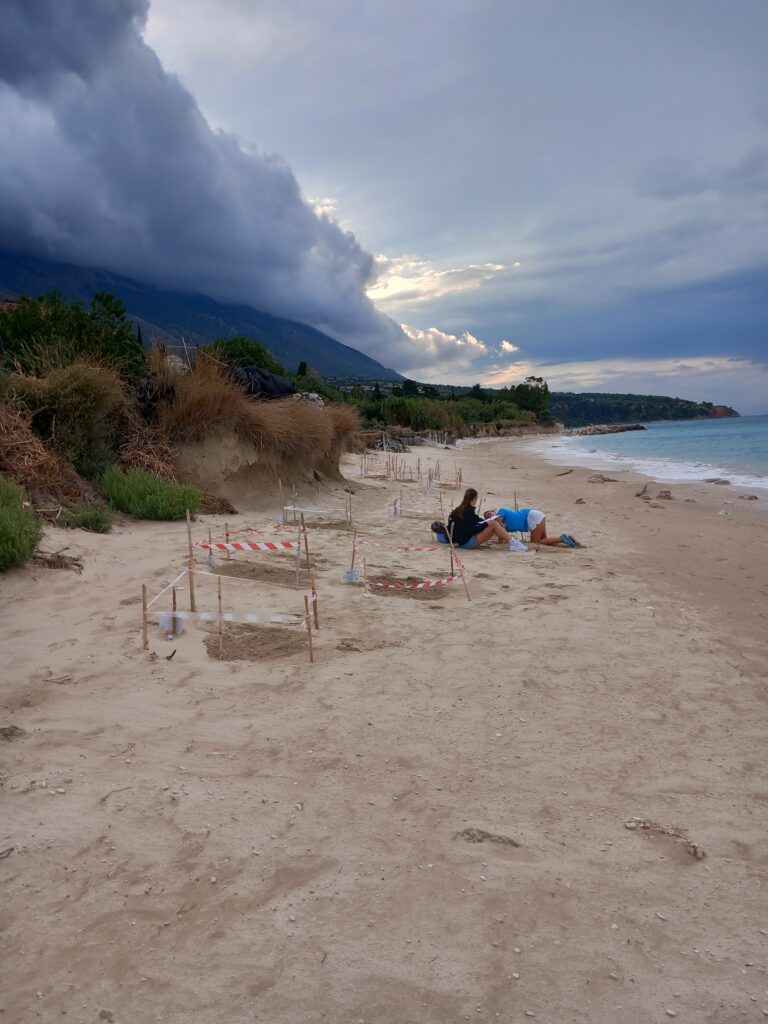
Additionally, we are now halfway through the nests with the team carrying out a total of 35 inventories in the last two weeks, leaving the remaining 29 nests for the Lourdas, Kanali and Trapezaki areas. Some of these nests have been hatching well, with one nest in particular, during a recent inventory, having 130 hatched eggs out of a total of 136 eggs! We are all extremely pleased when we find a healthy nest such as this.
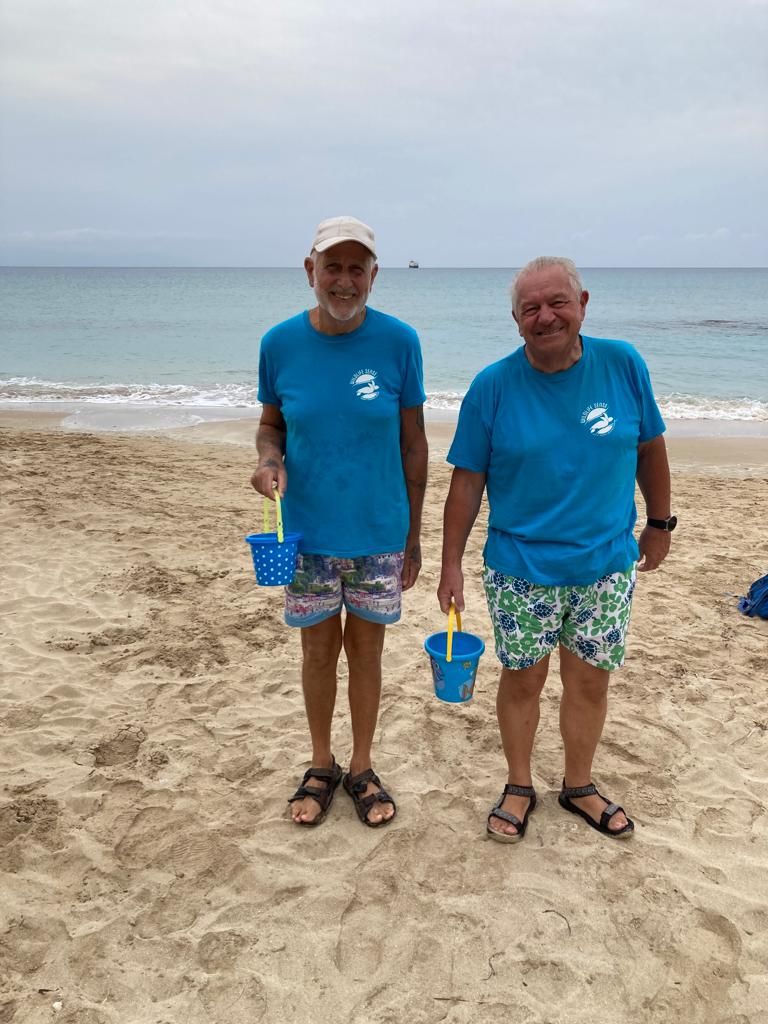
As we move through the hatching season into Autumn, we now have the changeable and unpredictable weather to contend with. Recently, we were anxious about the upcoming stormy, turbulent weather and the risk this posed to our nests in the Lourdas area. Therefore, some of us headed out in the wind, rain, and storms to check the protected nests. We were particularly concerned about the nests that were already hatching. So, the team spent a wet afternoon checking those nests for any hatchlings that may emerge during the storm. Fortunately, the nests looked fine and only one hatchling needed help to sea. The following few mornings with the unstable weather continuing we were also concerned that any incubating nests may have been washed over and flooded. During our morning surveys, the team has been carrying out moisture checks on any nests that are at risk of inundation. Luckily, all nests have been clear so far. As always, the team will continue their efforts to monitor all the remaining nests closely and ensure the safety of the nests and hatchlings.
